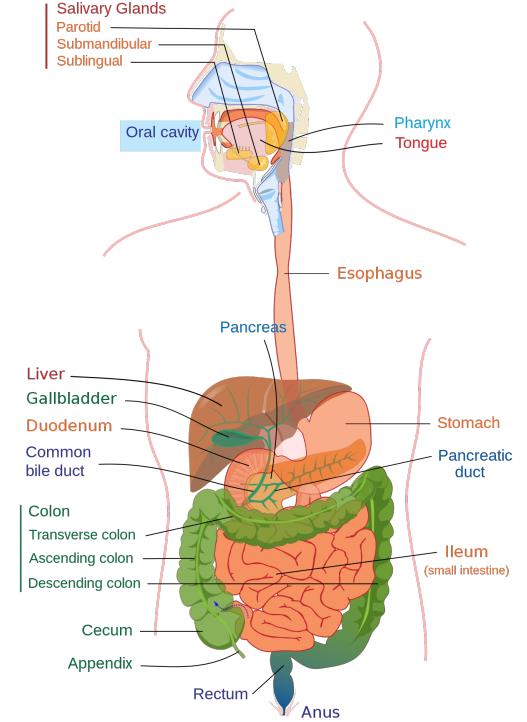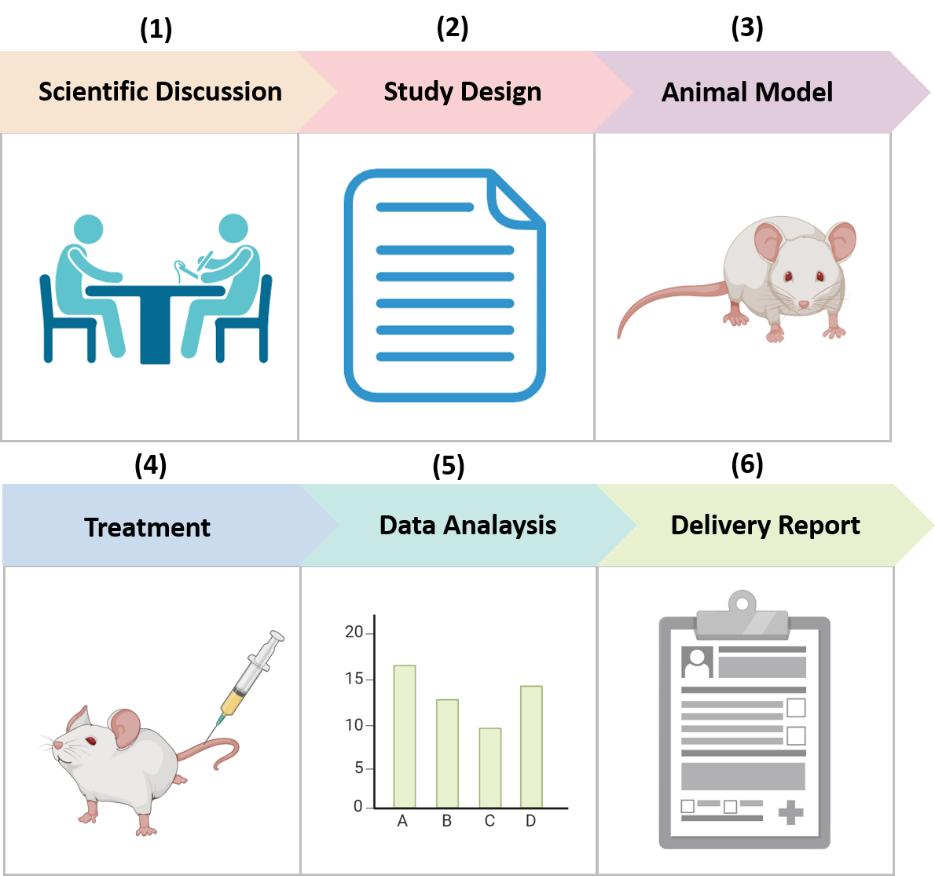- You are here: Home
- Disease Models
- Digestive Disease Models
Disease Models
- Oncology Models
-
Inflammation & Autoimmune Disease Models
- Rheumatoid Arthritis Models
- Glomerulonephritis Models
- Multiple Sclerosis (MS) Models
- Ocular Inflammation Models
- Sjögren's Syndrome Model
- LPS-induced Acute Lung Injury Model
- Peritonitis Models
- Passive Cutaneous Anaphylaxis Model
- Delayed-Type Hypersensitivity (DTH) Models
- Inflammatory Bowel Disease Models
- Systemic Lupus Erythematosus Animal Models
- Asthma Model
- Sepsis Model
- Psoriasis Model
- Atopic Dermatitis (AD) Model
- Scleroderma Model
- Gouty Arthritis Model
- Carrageenan-Induced Air Pouch Synovitis Model
- Carrageenan-Induced Paw Edema Model
- Experimental Autoimmune Myasthenia Gravis (EAMG) Model
-
Cardiovascular Disease Models
- Surgical Models
- Animal Models of Hypertension
- Venous Thrombosis Model
- Atherosclerosis model
- Cardiac Arrhythmia Model
- Hyperlipoidemia Model
- Doxorubicin-induced Heart Failure Model
- Isoproterenol-induced Heart Failure Model
- Arterial Thrombosis Model
- Pulmonary Arterial Hypertension (PAH) Models
- Heart Failure with Preserved Ejection Fraction (HFpEF) Model
-
Neurological Disease Models
- Alzheimer's Disease Modeling and Assays
- Seizure Models
- Parkinson's Disease Models
- Ischemic Stroke Models
- Acute Spinal Cord Injury (ASCI) Model
- Traumatic Brain Injury (TBI) Model
- Hypoxic-Ischemic Encephalopathy (HIE) Model
- Tourette Syndrome (TS) Model
- Amyotrophic Lateral Sclerosis (ALS) Model
- Huntington's Disease (HD) Model
- Intracerebral hemorrhage (ICH) Models
- Pain Models
- Metabolic Disease Models
- Liver Disease Models
- Rare Disease Models
- Respiratory Disease Models
- Digestive Disease Models
-
Urology Disease Models
- Cisplatin-induced Nephrotoxicity Model
- Unilateral Ureteral Obstruction Model
- 5/6 Nephrectomy Model
- Renal Ischemia-Reperfusion Injury (RIRI) Model
- Diabetic Nephropathy (DN) Models
- Passive Heymann Nephritis (PHN) Model
- Adenine-Induced Chronic Kidney Disease (CKD) Model
- Kidney Stone Model
- Doxorubicin-Induced Nephropathy Model
- Orthopedic Disease Models
- Ocular Disease Models
- Skin Disease Models
- Infectious Disease Models
Digestive Disease Models
Creative Bioarray is a preclinical Contract Research Organization (CRO) that specializes in efficacy studies. Our area of expertise lies in developing a wide range of models of digestive disease, and with years of experience in this field, we offer in vivo pharmacology studies that provide you with specialized answers about the potential efficacy of your compounds. According to your needs, we can perform classical, Intravenous (IV), Intraperitoneal (IP) or Intrarectal administration. Our team of experts employs innovative techniques to conduct these studies, ensuring that you receive reliable and accurate results. With our services, you can rest assured that your compounds will be thoroughly tested and evaluated, giving you the confidence you need to take your research to the next level.
The digestive tract, commonly referred to as the gastrointestinal (GI) tract or system, encompasses various organs such as the stomach, large and small intestines, liver, pancreas, and gallbladder. Digestive ailments can significantly impact this intricate system, often manifesting in symptoms like heartburn, nausea, vomiting, abdominal pain, constipation, or diarrhea. To gain a deeper understanding of these conditions and their underlying mechanisms, Digestive Disease Animal Models play a crucial role. These models allow researchers to replicate human digestive disorders in animals, providing a controlled environment to study the progression of diseases, evaluate potential treatments, and assess the efficacy of novel therapies. By leveraging these models, we can gain insights into the pathophysiology of digestive diseases, leading to more effective and targeted therapeutic strategies for patients.
 Fig. 1 Digestive system
Fig. 1 Digestive system
Our Digestive Disease Models
When it comes to developing drugs for digestive diseases, researchers often face the challenge of avoiding harm to patients during the drug development process. In order to overcome this challenge, animal disease models are used instead. At Creative Bioarray, we provide a number of validated models of digestive disease. Each disease type has multiple methods to create models that provide different disease parameters for your candidate compounds.
- Necrotizing Enterocolitis (NEC) Model
- Irritable Bowel Syndrome (IBS) Model
- Gastric Ulcer (GU) Model
- Pancreatitis Model
- Inflammatory Bowel Disease (IBD) Model
 Fig. 2 Workflow of our digestive disease model
Fig. 2 Workflow of our digestive disease model
Quotation and Ordering
Creative Bioarray offers preclinical services that are both cost-effective and time-efficient, adhering to the highest standards of quality and precision. A dedicated team of scientists will be assigned to guide you in selecting the most appropriate model and developing study-specific protocols, ensuring optimal results with minimal resource expenditure. If you are interested in our services, please feel free to contact us at any time or submit an inquiry directly.
Reference
- Thomas Abraham J V, et al. A Deep-Learning Approach for Identifying and Classifying Digestive Diseases. Symmetry, 2023, 15(2): 379.
For research use only. Not for any other purpose.

